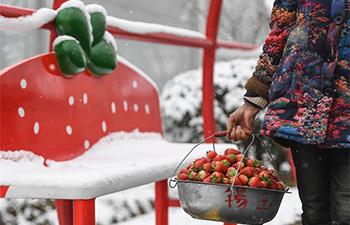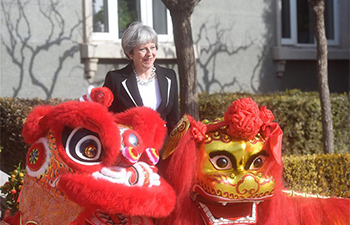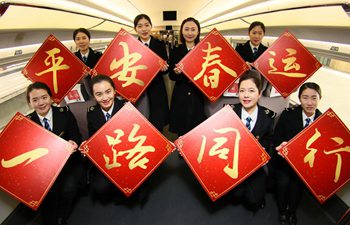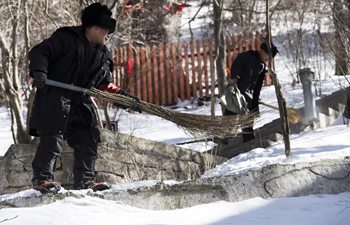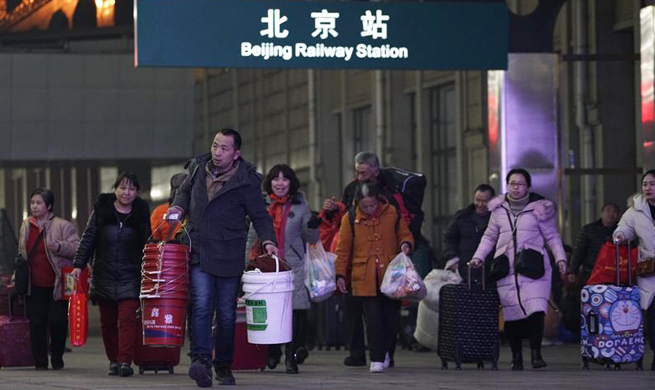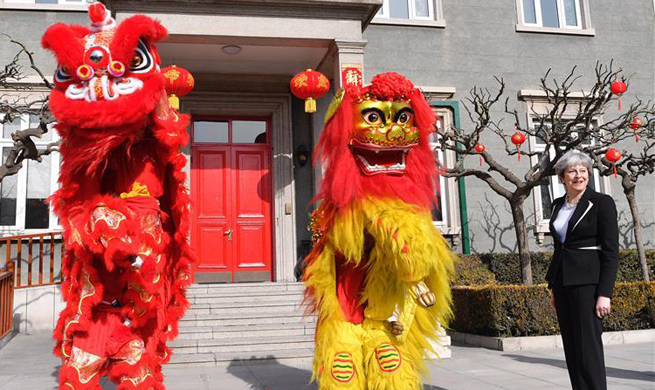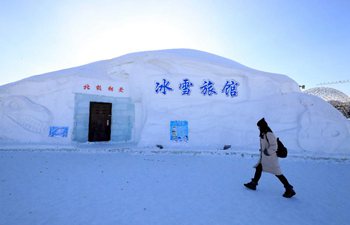SEOUL, Feb. 1 (Xinhua) -- South Korea's headline inflation fell to the lowest in 17 months in the first month of this year, lowering a possibility for further interest rate hike in the near future, a government report showed Thursday.
Consumer prices rose 1 percent in January from a year earlier, according to Statistics Korea. It marked the lowest in 17 months since the consumer price inflation logged 0.5 percent in August 2016.
The headline inflation hovered between the upper 1 percent and the mid-2 percent from January to October of last year, before falling to 1.3 percent in November and 1.5 percent in December respectively.
The lower inflationary pressure reduced a possibility for the Bank of Korea (BOK) to raise its benchmark rate in the foreseeable future.
The BOK lifted its policy rate by a quarter percentage point to 1.5 percent in late November, the first rate increase in almost six and a half years.
Expectations spread for the U.S. Federal Reserve to increase its benchmark rate from a range of 1.25-1.5 percent as early as in March. The lower end of the Fed's benchmark rate was identical to the BOK's target rate.
If the BOK belatedly raises its policy rate, the benchmark rates between South Korea and the United States would be reversed. It can lead to an abrupt foreign fund outflow from the South Korean financial market.
The lower headline inflation of South Korea was led by a decline in vegetable price, which tumbled 12.9 percent in January from a year earlier. It pulsed down the overall inflation by 0.25 percentage points.
The farm goods prices gained rapidly in January last year. Due to the high base effect, the vegetable prices tumbled in January this year.
Prices for electricity, tap water and natural gas dipped 1.5 percent in January from a year ago.
Services prices rose 1.4 percent last month, marking the lowest increase since February 2014.
The eating-out costs rose at a lower pace than expected though the government decided to raise minimum wage by 16.4 percent beginning Jan. 1.
Higher minimum wage was widely forecast to raise dining-out costs as restaurants, which were required to increase labor costs for part-time workers, could lift services prices.
Inflationary pressure was predicted to get strong in February ahead of the Lunar New Year's holiday and the South Korea-hosted Winter Olympics.
The so-called livelihood prices, which reflect daily necessities, rose 0.9 percent in January from a year earlier, the lowest in 17 months.
Among the daily necessities, food costs inched up 0.4 percent and posted the lowest gain in 40 months.
The fresh food price index, which reflects prices for vegetables and fruits, slipped 2.6 percent in January, keeping a downward trend for three months in a row.
Core prices, which exclude volatile agricultural and oil products, added 1.1 percent. It was the lowest since December 1999.




